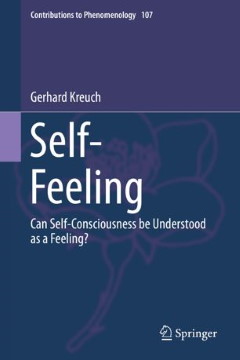Repository | Book | Chapter

(2019) Self-feeling, Dordrecht, Springer.
The main goal of the first part of this book is to present some important challenges in contemporary philosophy of self-consciousness. These challenges will motivate a deeper look into philosophy of human affectivity in Part II and a proposal for a solution in Part III. This chapter introduces the debate over self-consciousness and proposes an attempt to categorize four different types of theories. First, a distinction can be made between egological and non-egological theories of self-consciousness. Classical egological approaches understand self-consciousness as consciousness of a distinct entity that is the underlying subject of mental states, a core "ego". In contrast, non-egological approaches understand self-consciousness as a property of mental states. A second important distinction deals with the question of how self-consciousness is actually established. Higher-order (or reflective) models see self-consciousness as reflective process where a higher instance makes a lower instance self-conscious. Alternatively, there are same-order (or pre-reflective) models of self-consciousness. They argue that the bearer of self-consciousness is itself self-conscious, without the need for an additional level. Given these distinctions, we may distinguish four types of theories of self-consciousness, each facing significant challenges: Reflective egological, reflective non-egological, pre-reflective egological, and pre-reflective non-egological.
Publication details
DOI: 10.1007/978-3-030-30789-9_1
Full citation:
Kreuch, G. (2019). A brief overview of philosophy of self-consciousness, in Self-feeling, Dordrecht, Springer, pp. 3-9.
This document is unfortunately not available for download at the moment.



